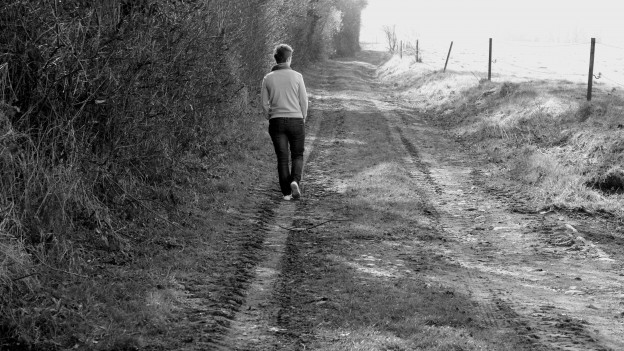 This might sound like a silly question, but how do I know that I’m in love? I come from a pretty messed up family (my parents’ marriage was a disaster) and my own dating history isn’t much better. Now, even though I’m in a great relationship with a great person, I keep wondering — how will I know this is real? How will I know it is love?
This might sound like a silly question, but how do I know that I’m in love? I come from a pretty messed up family (my parents’ marriage was a disaster) and my own dating history isn’t much better. Now, even though I’m in a great relationship with a great person, I keep wondering — how will I know this is real? How will I know it is love?
**This post is the fourth in our monthly series, “Ask Our Therapists.” Even though each therapist at Emily Cook Therapy works from a similar overall counseling philosophy, we are also each unique in how we think about problems and offer support. We hope by reading our different answers to the same question, you get a better sense of who we are as individuals and how we each could help!**
Lindsey Foss , licensed marriage and family therapist: There are a few things that I would ask myself to discern not only if I’m in love, but if this person is someone who I would like to partner with long term. If your answer is yes to these five questions, I think it is safe to say you are in love!
, licensed marriage and family therapist: There are a few things that I would ask myself to discern not only if I’m in love, but if this person is someone who I would like to partner with long term. If your answer is yes to these five questions, I think it is safe to say you are in love!
- Do I know I am safe (emotionally and physically) with this person? Safety is the bedrock of any loving relationship.
- Is the relationship largely free from criticism and contempt? Does your partner respect your opinions and choices, even if they disagree? Can you count on this person if you are in a difficult situation and need help? Does this person protect my physical boundaries and provide me with the type of physical affection that I need? Am I able to be my full, authentic self with this person? If you find that there are parts of yourself that you don’t share with your partner, or parts of you that they actively deny or discourage, you might not be in love.
- Does this individual share my most important values? Most people won’t share the majority of your values, but if your partner doesn’t share your top one or two, you might be headed for trouble.
- Does this person bring me joy and make me laugh? Laughter is one form of very deep connection between two people. If you don’t make each other laugh, it might not be the right relationship for you.
- Do I do all these things for them? Love is not a one way street! If it is true love, there is give and take in the relationship in both directions.
 , licensed marriage and family therapist: Everyone from the Ancient Greeks to modern psychologists have pondered over the question, “What is real love?” The Greeks believed that there were many different types of love — one type for family, one type for committed partners, one type for flirtation, etc. More modern theories of love suggest that “consummate” or complete love is the combination of three components: intimacy, passion, and commitment. Also, love can change over time. What starts out as fiery and passionate love often transforms into a meaningful familiarity and friendship, a process that is healthy, if sometimes unexpected. But despite years of laboring to answer this question, I don’t think any scientist, theorist, or therapist can give you a definitive answer. Love means different things to different people! So, it might also be worth examining ways in which your family and relationship histories are influencing you to question whether you’re experiencing “real love” in your current relationship — but remember, if you are feeling happy, secure, and connected with your current partner and can imagine building a future together, to me it is worth trusting that what you feel is “real love” (because, remember, you define what “real love” means to you!).
, licensed marriage and family therapist: Everyone from the Ancient Greeks to modern psychologists have pondered over the question, “What is real love?” The Greeks believed that there were many different types of love — one type for family, one type for committed partners, one type for flirtation, etc. More modern theories of love suggest that “consummate” or complete love is the combination of three components: intimacy, passion, and commitment. Also, love can change over time. What starts out as fiery and passionate love often transforms into a meaningful familiarity and friendship, a process that is healthy, if sometimes unexpected. But despite years of laboring to answer this question, I don’t think any scientist, theorist, or therapist can give you a definitive answer. Love means different things to different people! So, it might also be worth examining ways in which your family and relationship histories are influencing you to question whether you’re experiencing “real love” in your current relationship — but remember, if you are feeling happy, secure, and connected with your current partner and can imagine building a future together, to me it is worth trusting that what you feel is “real love” (because, remember, you define what “real love” means to you!).Anna White , licensed marriage and family therapist: The important thing to remember is that love is an action. Whether your love is “real” or not depends entirely on how you and your partner behave! The way you and your partner work together and support each other is the most important determinant in the health and vitality of your love. For many reasons, it is common for people with a history of unhealthy relationships to question themselves when they find someone different than their past. When you find yourself confused, scared, or uncertain about your relationship, try asking yourself these questions to determine if your relationship is thriving, wilting, or unhealthy:
, licensed marriage and family therapist: The important thing to remember is that love is an action. Whether your love is “real” or not depends entirely on how you and your partner behave! The way you and your partner work together and support each other is the most important determinant in the health and vitality of your love. For many reasons, it is common for people with a history of unhealthy relationships to question themselves when they find someone different than their past. When you find yourself confused, scared, or uncertain about your relationship, try asking yourself these questions to determine if your relationship is thriving, wilting, or unhealthy:
- Do I feel safe when I am with my partner?
- Do my interactions with my partner primarily leave me happier or sad?
- Are my partner and I both free to develop ourselves as individuals (have independent friends, pursue hobbies, and work toward personal goals)?
- When (not if, but when) my partner and I argue, are we able to come back together and work on the problem?
- Are my partner and I able to accept each other’s emotions and make an effort to take the other’s point of view?
- Do my partner and I value and support each other’s dreams and goals?
- Have I developed a set of healthy boundaries within this relationship and are those boundaries respected?
Answering these questions may be difficult to do on your own — seeking individual therapy in Bethesda, MD would be a great way to explore your thoughts and feelings with someone specifically trained to help.
 , licensed marriage and family therapist: It is totally normal to wonder whether you are “in love” with your partner. I believe love is healthy attachment to one’s partner; something you can definitely have, even if you came from a “pretty messed up family.” In discerning whether you are actually ” in love,” you might want to ask yourself the following questions:
, licensed marriage and family therapist: It is totally normal to wonder whether you are “in love” with your partner. I believe love is healthy attachment to one’s partner; something you can definitely have, even if you came from a “pretty messed up family.” In discerning whether you are actually ” in love,” you might want to ask yourself the following questions:- Does your partner make you feel safe and supported?
- Does he/ she serve as a buffer against stress and anxiety?
- When you are with your partner, do you feel secure and comfortable in your own skin? Can you be yourself around him/ her?
- Is your partner available and responsive when you need to express your feelings?
- Do you feel like you have the right balance of dependence and autonomy in your relationship?
I know these are not simple questions to answer on your own, so working with a Bethesda, MD therapist is a wonderful way to make sense of how you are feeling about your relationship. So many of my clients come to therapy to investigate how they feel about their partners, to evaluate if they are in a relationship that is healthy and loving, and to explore whether their relationship can stand the test of time. It is so beneficial to process these questions with a trained couples therapist who can be a nonjudgmental sounding board for you!
